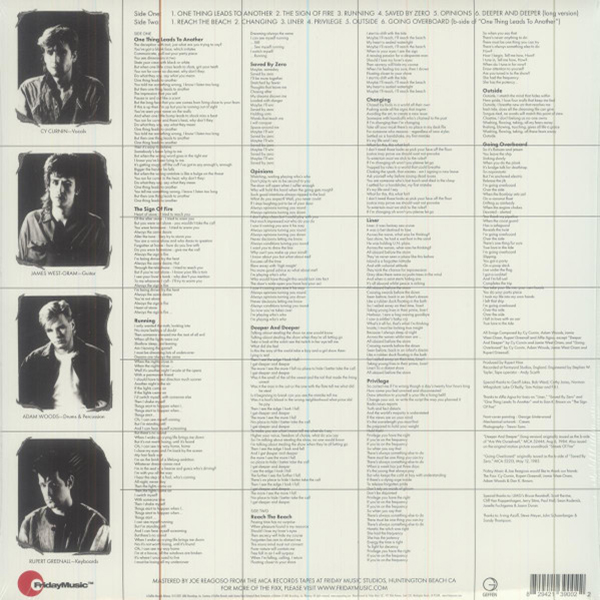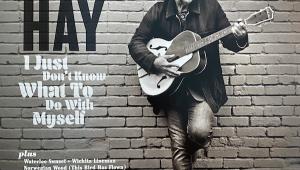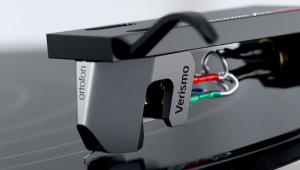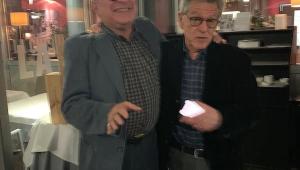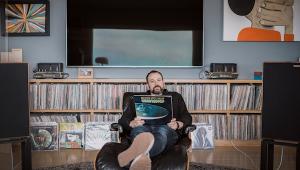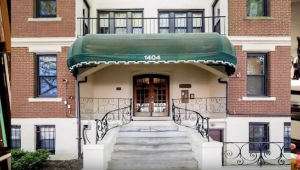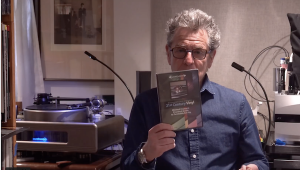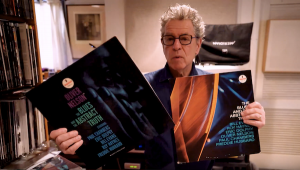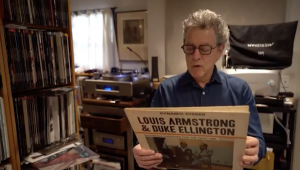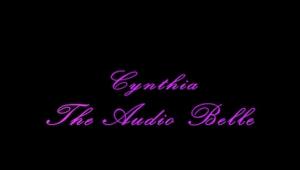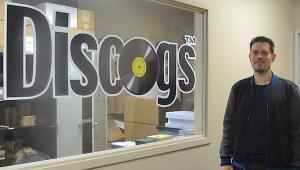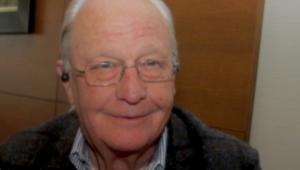Guitarist Jamie-West Oram Uses His Personal Skeleton Key to Decipher Why the Textured, Future-Proof Music of The Fixx Always Sounds So Good on Vinyl
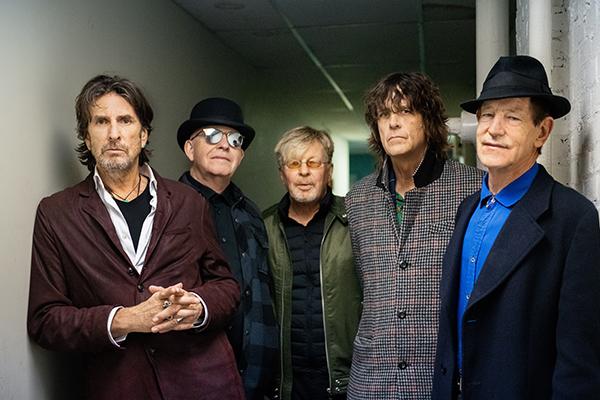
Jamie West-Oram is a master of texture. Forty-plus years ago, the long-tenured guitarist of The Fixx forged a signature soundscape bed for the band’s chief lyricist and lead vocalist Cy Curnin to weave his timeless tales around, typically buttressed by adventurous keyboard figures from Rupert Greenall and more often than not buoyed by the studio acumen of producer Rupert Hine (who sadly passed away in 2020) and engineer Stephen W. Tayler, the latter of whom continues to work with the band to this day. West-Oram never oversteps his role as a supportive player, choosing instead to build arctic-cool guitar atmospherics that align him well amongst the core tenets of fellow like-minded fretboard soundpainters such as Robert Fripp, Andy Summers, and Alex Lifeson’s approach in Rush circa 1982-88.
But now, West-Oram is stepping out, so to speak, with a new solo album entitled
“I’m glad you’ve influenced me about putting this album out on vinyl — and those tracks you’ve mentioned to be the ender of the first side and the start of the second make sense to me,” West-Oram allows. “And I do think sequencing is a very important part of making an album. When my partner in crime, Nick Jackson — who co-produced the album — and I both felt we had gotten the material we needed to do the job, we decided to send each other the proposed sequence, without discussion. When we both opened the envelope, so to speak, they were exactly the same.”
While we all await Skeleton Key’s official vinyl-pressing assignment, there is plenty of Fixx music on waxx (double x there very much intended) to spin in the meantime. The most recent example being the band’s 2022-released 2LP set on BFD,
Rather than leave the final, fourth LP side of Every Five Seconds blank — or merely embedding it with a laser-etching we’d all likely look at once and then promptly forget — The Fixx instead decided to give all of Side D over to “Dreaming,” a 14-minute instrumental experiment. “Do you remember there was a Johnny Winter album that was a double album, but it only had three sides?” West-Oram asks, referring to October 1969’s Second Winter (on Columbia). “It was just done that way because they wanted to get the power, and they didn’t want to cram it onto two sides. So, nothing happens on Side 4 apart from a little bit of crackling. We didn’t want to do that.”
And, of course, we would clearly be remiss if we didn’t acknowledge this year also being the 40th anniversary of The Fixx’s May 1983 breakthrough sophomore MCA LP, Reach the Beach, which itself saw a vinyl reissue in early 2022 via Friday Music/Geffen in both clear-blue and clear-gold options, each version containing a bonus of-era track on either side (the long version of the Streets of Fire soundtrack favorite “Deeper and Deeper” at the end of Side 1, and the B-side “Going Overboard” at the end of Side 2). Beach more than holds its own on vinyl, with details such as drummer Adam Woods’ insistent hi-hat on “One Thing Leads to Another,” the widescreen surface-noise crunch all throughout the back half of “Opinions,” and the final guitar-neck-strangling, note-bending, Beck-Ola windout of “Outside” all readily attesting.
“It’s kind of eerie the way Reach the Beach is forward-thinking in so many different ways — and you’re quite right that it’s more relevant now than ever,” West-Oram concedes. “I think that’s probably a subconscious thought that we all have — and one that we all share. The good thing about the lyrics — mostly nearly all of them Cy [Curnin’s] lyrics, of course — is they’re kind of not-quite-specific. They always leave a little room for interpretation.” Just like the best albums worth revisiting time and again always seem to do.
During a recent Zoom interview, West-Oram and I discuss his earliest vinyl-listening experiences, the key equipment ingredients that comprise his signature guitar sound, and how Reach the Beach retains such palpable resonance on vinyl to this very day. I see the edge, I look I fall / The further I fall, the further I see. . .
Mike Mettler: Do you feel vinyl is the best way to hear Fixx music?
Records were very important to me as a child. I’m the youngest of four, and my older siblings would go out and buy records. I couldn’t afford them, but I got to listen to The [Rolling] Stones, The Beatles, The Who, and The Beach Boys — you name it. We had a player where you could stack up the singles, and they’d drop down one by one — and that was great fun too.
Mettler: I feel like you’re channeling Syd Barrett on Skeleton Key’s “Cuckoos in the Nest.” Do you consider Syd to be an important influence on your listening and music-creating career?
Mettler: Oh, yeah, I think so too. I mean, go back to their early [1967] singles like “Arnold Layne” and “See Emily Play,” and even “Interstellar Overdrive,” and that’s not exactly the mainstream.
Mettler: Did you buy those early Pink Floyd records? Did you own [August 1967’s] The Piper at the Gates of Dawn, [June 1968’s] A Saucerful of Secrets, or anything like that?
Mettler: Wow. What was the very first thing you got for yourself that was like, “Hey, this is my record” — the first one you got that was your thing?
Mettler: Can’t argue with that choice. Whereabouts would you have gotten that? Where was your local record store?
Mettler: Were you already playing guitar yourself at that point? Did that Jimi record inspire you as a player?
Mettler: That’s a fair point. Let’s go all the way back to your very first single, “Lost Planes” [released on 101 Records in 1981 — back when Jamie only went by “West” as his surname and the band only had one x at the end of its name, as seen above]. You had to start coming up with a sound other people weren’t doing, so what were the elements you put together to come up with what I’ll call “the Jamie sound”?
I went in to Rupert Hine, who was our producer then, and I said, “I’ve got this idea.” And he said, “Well, just go and try it,” and it was just straight into an amp, with a fairly clean sound. Steve Taylor, the engineer — you know, the engineering legend we’re still working with today — he processed it through compression and a Roland Dimension D [stereo chorus rack unit], and we got this “chorusy” sound. I went, “Ah hah! I think I’ve turned a corner here.” [MM notes: Go to circa the two-minute mark in the YouTube clip above of “Some People” to get a taste of said corner-turn.]
Then it was a question of, “I want to be able to do this sort of thing live,” so I started saving up the pennies. I bought the MXR Stereo Chorus [effects pedal] — and then I had to get a compressor, so I got the [MXR] Dyna Comp, and it just built up from there.
Mettler: And that, right there, essentially defined your signature sound. To me, The Fixx also had more of a punk edge to your music than people may have realized, because you’re very against whatever supposed box people are trying to put you in. Do you feel like punk was part of your muse? I think you had the New York Dolls in you as much as anything else, to some degree.
That was in 1980, so it was kind of punk. It exploded, and it just needed to. It had to, and it was great. I suppose we were still feeling the energy of that even four years later, but still trying to invent new things all the time.
Mettler: We’re now exactly 40 years on from your breakthrough 1983 second album, Reach the Beach. Can you actually step away from it and look at how much that album’s sound and what you guys established there essentially set a benchmark for what The Fixx keeps on doing, right to this day?
Mettler: Was there one track that cracked it for you? Like, “This is the one” — the one that opened the door to get the rest of the album into its right space?
Mettler: Interesting. The other thing I think that made Reach the Beach stand out at the time is the concept in the songwriting where you guys were able to marry what I call “bigger-picture thinking” with sounds that went into different universes, and didn’t really sound much like anything else that was happening at the time. Plus, the cover image really reflects the muscle-stretch of the music too — like, “We’re trying to get somewhere that other people haven’t been.” Is that fair to say?
Mettler: And that some people still haven’t. Obviously, “One Thing Leads to Another” became a bit hit for The Fixx [reaching No. 4 on the U.S. Billboard Hot 100], and it still gets heard all over the place today, I’m sure you’re pleased you have a touchstone song that people can start with before diving into the other riches of the Fixx catalog. Did you ever think “One Thing” would be the one that essentially took you everywhere?
Mettler: Fair point there. I also found “One Thing” to be nicely counterbalanced with “Saved by Zero,” which I think comes next in the singles sequence. [Actually, “Zero” came first, and it reached No. 20 on the U.S. charts.] It really seems like those two are the bookends of, “This is one area of what we do, and this is the other area of what we do.” They sprang off each other, but they don’t sound the same.
Mettler: Very well put. Jumping ahead to the next album, [August 1984’s] Phantoms, I could put on the lead single “Are We Ourselves?” a million times in a row, and never get tired of it. I especially love the way your guitar sound bends throughout that song. What did you do to get that kind of “twist”?
Mettler: For you as a player, is there one song in the Fixx catalog that’s something you feel is the “definitive” Jamie guitar moment, or something that you can say of, “This is what I am”?
Mettler: Both great tracks, absolutely. I also have to give props to “Deeper and Deeper” [originally found on the 1984 soundtrack to
I had a beat done on a Roland [TR-06] Dramatix [drum machine], and he came up with the bass line, and then the vocals and the guitar followed. It was done just on a little [Tascam] Portastudio. We looked at each other and thought, “I think we’ve got it! I think we’ve done it.” And then the doorbell rang, and it was Jimmy. He listened to it, and he went, “That’s the one! That’s perfect.” And that’s how that one came about.
Mettler: A nice, happy ending there, then! (both laugh) Anyway, one last thing for us to do before we wrap things up here is, I want to actually do a projection into the future since we we’ve been talking a lot about it today. I want to jump us 50 years down the line to 2073. And, as I like to say, unless there’s some weird science going on, you and I are probably not physically on the planet in 2073 — but however people are listening to music then, and they type “The Fixx” or “Jamie West-Oram” into whatever device they’re using, what kind of experience do you want that person to get?
Mettler: That’s not infantile at all. I think that’s something we’d all want.
THE FIXX
Side A
Side B
Side C
Side D
THE FIXX
Side 1
Side 2
*Not on original 1983 MCA LP; added to 2022 LP reissue
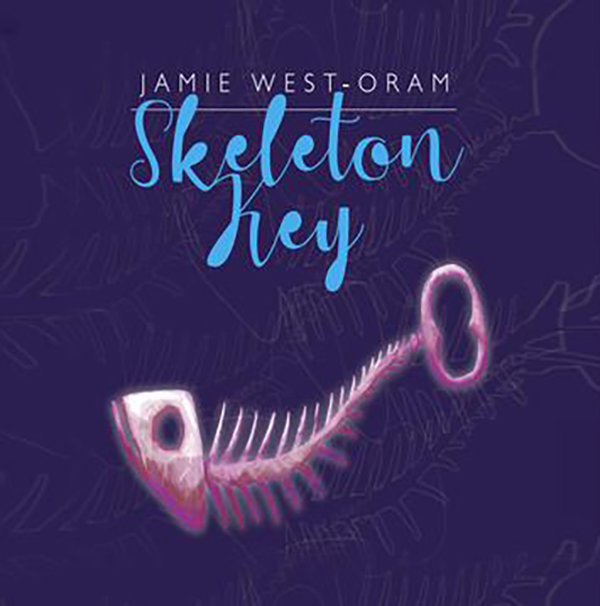
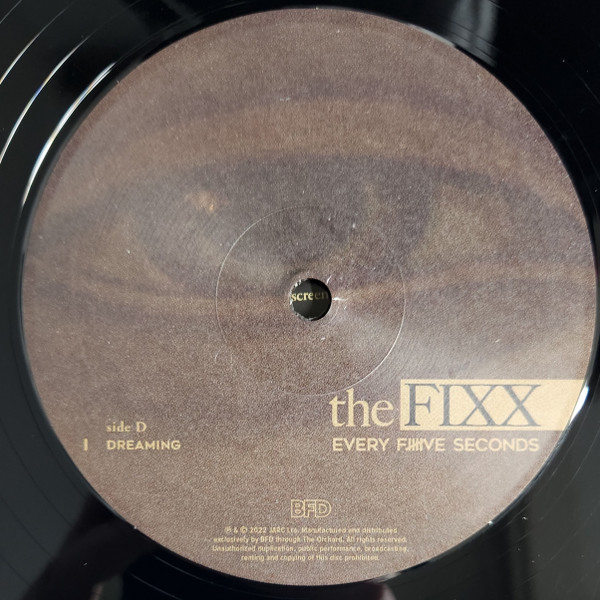
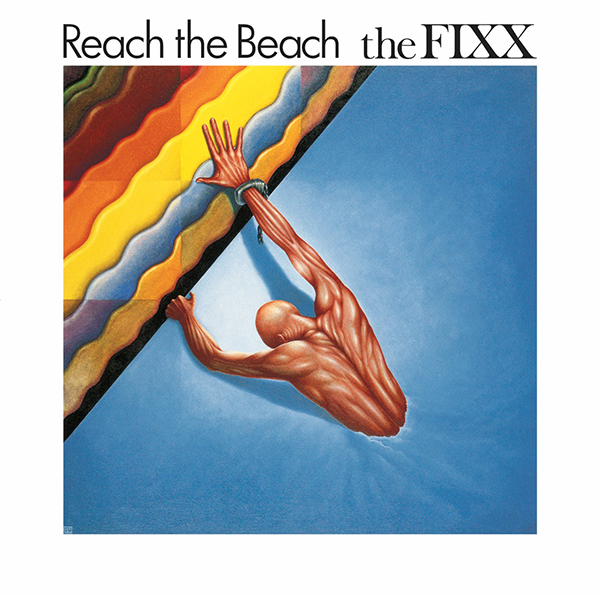
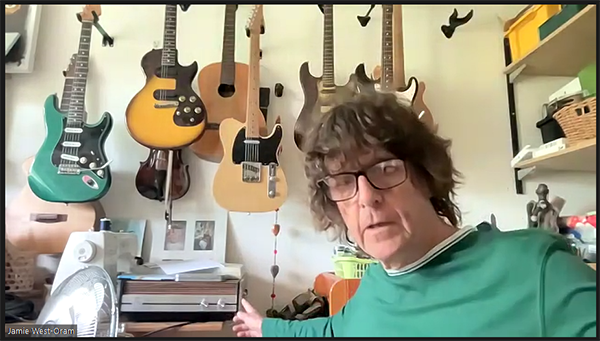
Jamie West-Oram: Well, I’d like to think there’s a certain timelessness, as you’ve mentioned, with the music we’ve created, so I’d like to say yes. And, as you may be able to see in the background, I’ve got a turntable here [as seen in the above screenshot], and it’s great fun. I do also like the process of dropping the needle and going, “Oh yeah, I managed not to scratch the record.” (both laugh)
West-Oram: Sure, yeah. Yeah. I mean, Syd is a real kind of enigma. He’s a fascinating character, a true artist. And you know, it’s funny the way that punk and the new-wave thing was supposed to brush all the huge bands like Pink Floyd aside. But Pink Floyd, in their own way — they were the punks of their day, in the 1960s.
West-Oram: That’s right. It’s raw. It’s really raw. It’s heady, but it’s raw at the same time. I love all that stuff.
West-Oram:: I don’t think I owned them, but I was in a house full of people at one point when I lived in Leeds, and there were lots of those Floyd records around. I tended to buy American albums at the time, like Quicksilver Messenger Service.
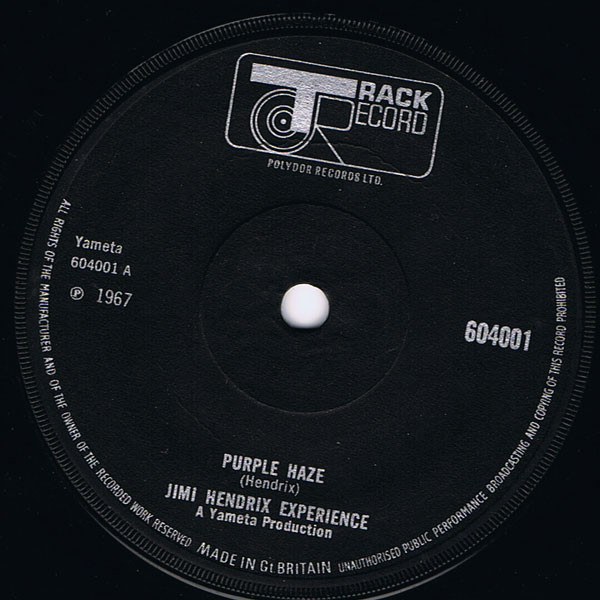
West-Oram: The first one I ever owned? Okay, let’s put Pinky and Perky [ a late-1060s animated British children’s TV series] to one side. ((MM laughs) Let’s move on to “Purple Haze,” I think, that was probably the first single I ever went and bought. [In the UK, the Jimi Hendrix Experience’s “Purple Haze” was released on the Track Record label in March 1967.]
West-Oram: Well, I grew up near a town called Northwich in the northwest [of England], and, actually, they didn’t have it. I had to order it. It took a couple of weeks, but one day, I went in there — well, I went in every day — and there it is! I got it, got the bus home, put it on, and just played it over and over all afternoon.
West-Oram: It inspired me, yeah. Let’s think — I must have been 13 at the time, so, yeah, I was playing guitar. Not yet in a band, and I didn’t have an electric guitar at that point. i was experimenting with my dad’s big black acoustic guitar, and amplifying it through a tape recorder — you know, put the microphone inside the guitar, and plug it into the tape recorder. So, I was experimenting with multitracking even then. I think the limitations we had — maybe that was a driving force, you know? It’s like, “I know I want to hear this, but how do I do it?” And you feel very much driven to find out. But now, with the endless zillions of tracks available, and never having to make a decision in the moment and leaving the [track-editing] decision until later — it makes it harder, in a way.
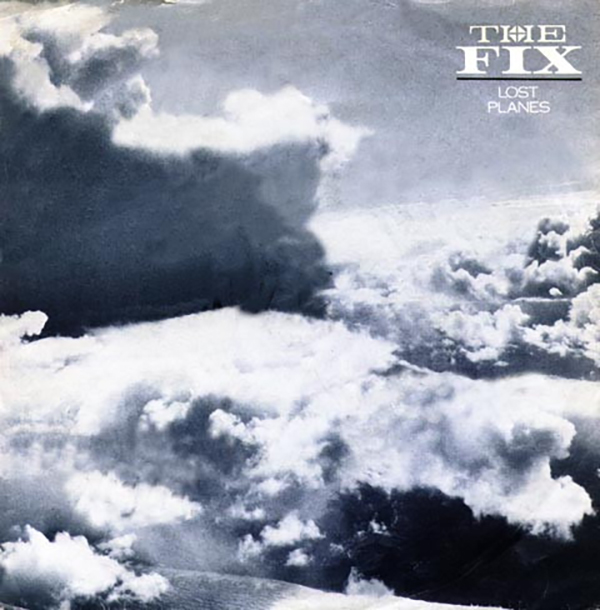
West-Oram: Well, starting with “Lost Planes,” the song you’re referring to — there were no effects on that one. It was just a Les Paul Junior straight into a Marshall [amp], turned up to 11. But then we recorded a song called “Some People” [Track 1 on Side 1 of The Fixx’s 1982 debut album on MCA, Shuttered Room]. In my head, I heard that it needed a part that just goes “chang” — you know, a very simple but not a strong, driven sound.
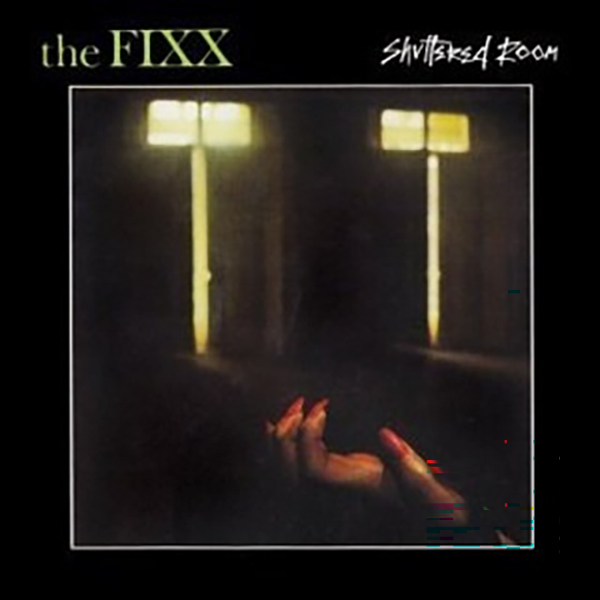
West-Oram: I think you’re right, yeah! Yeah. We used to rehearse in a derelict factory, back when we first started out in Vauxhall, in London. And that’s what we felt like — we felt just like those guys. We’d write a song in the day, and then play it in some club that evening. It was all very raw, and very exciting.
West-Oram: Yeah. At the time, that was what they often called “the difficult second album” (both laugh) — and it was actually very difficult to finish. There were difficult decisions to be made the whole time. It was unlike Shuttered Room, which we recorded and mixed in three weeks. Reach the Beachtook longer. We re-recorded the title track, “Reach the Beach” [Track 1 on Side 2] several times, for example. We were just trying to find the missing pieces of a jigsaw puzzle. We’re all very stubborn and determined, and we just got it done, you know?
West-Oram: Yeah, there are actually two of them. When we came up with “The Sign of Fire” [Track 2 on Side 1], and also when we came up with, “Changing” [Track 2 on Side 2] — those were the last two tracks we did, and we thought, “Okay, now we have it. Those are the missing pieces. Now we’ve got it.”
West-Oram: Yeah, you’re right — but I think it was more that our feeling was, “We’ve got to get to somewhere where we haven’t been before.” We were always trying to find something new — and doing that, I suppose, we ended up breaking new ground that other people hadn’t yet.
West-Oram: Not really! I never — I don’t know who it was, but one of the other guys in the band said, “I think that’s the one.” And I was going, “Oh, is it? I don’t know.” (laughs) It’s a very simple song in some ways, but not in other ways.
West-Oram: Yeah, yeah! “Saved by Zero,” I suppose, shows more of the dreamy side of the band, and the rhythmic side too. “One Thing Leads to Another” is just a thrashing-it-out kind of thing with a very strong vocal hook from Cy — and some crazy keyboard parts from Rupert [Greenall].
West-Oram: I just played the part clean, and Dan [Fixx bassist Dan K. Brown] and I played the riff in unison. I think we came up with the chorus together in rehearsals. It just sort of drove itself, and we went, “Okay, those are going to be the chords for the chorus.” And then I had to find a guitar part — that nice, “sprungy” arpeggiated guitar part.
West-Oram: As far as the — well, it’s not exactly self-indulgent, but I’m quite happy with the way “Outside” [Track 5 on Side 2 of Reach the Beach] turned out. And “The Fool” [Track 5 on Side 1] on the first album [Shuttered Room] as well.
West-Oram: Sure, yeah! (chuckles) That song, Cy and I wrote in half an hour — because we had to. We were both in New York, living in the same building but in different apartments, and I got a phone call from him — a frantic phone call saying, “[Producer] Jimmy Iovine is coming around in half an hour to listen to the song that we’ve written for the film, Streets of Fire” — and we hadn’t done it! So it was, “Okay, let’s do it now.” (laughs)

West-Oram: A happy one. I want them to feel happy! (chuckles) Maybe that sounds kind of infantile, but that’s what I’d like.
West-Oram: Yeah — and the funny thing is, it doesn’t even have to be a particularly happy song to make somebody happy.
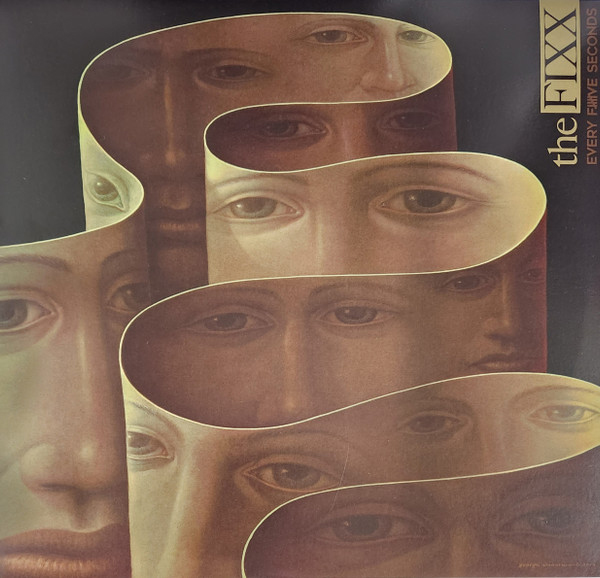
EVERY FIVE SECONDS
2LP (BFD)
1. A Life Survived
2. Closer
3. Take What You Want
4. Suspended In Make Believe
1. Lonely As A Lighthouse
2. Cold
3. Spell
1. Wake Up
2. Woman Of Flesh And Blood
3. Neverending
1. Dreaming
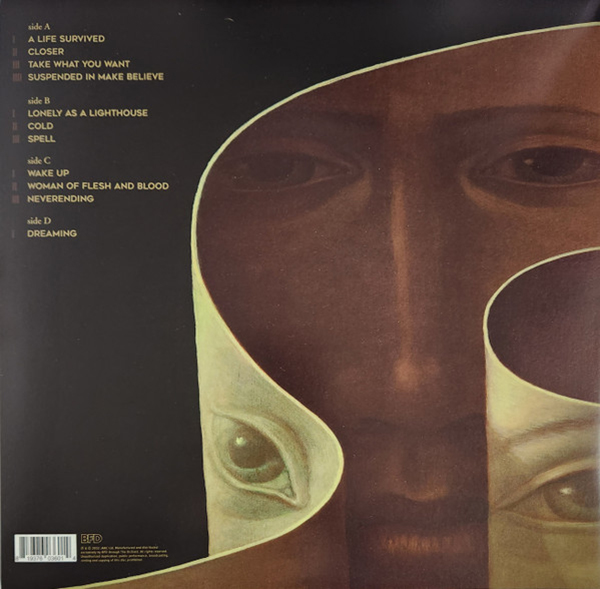

REACH THE BEACH
1LP (Friday Music/Geffen/UMG)
1. One Thing Leads To Another
2. The Sign Of Fire
3. Running
4. Saved By Zero
5. Opinions
6. Deeper And Deeper (Long Version)*
1. Reach The Beach
2. Changing
3. Liner
4. Privilege
5. Outside
6. Going Overboard (B-Side Of One Thing Leads To Another)*
